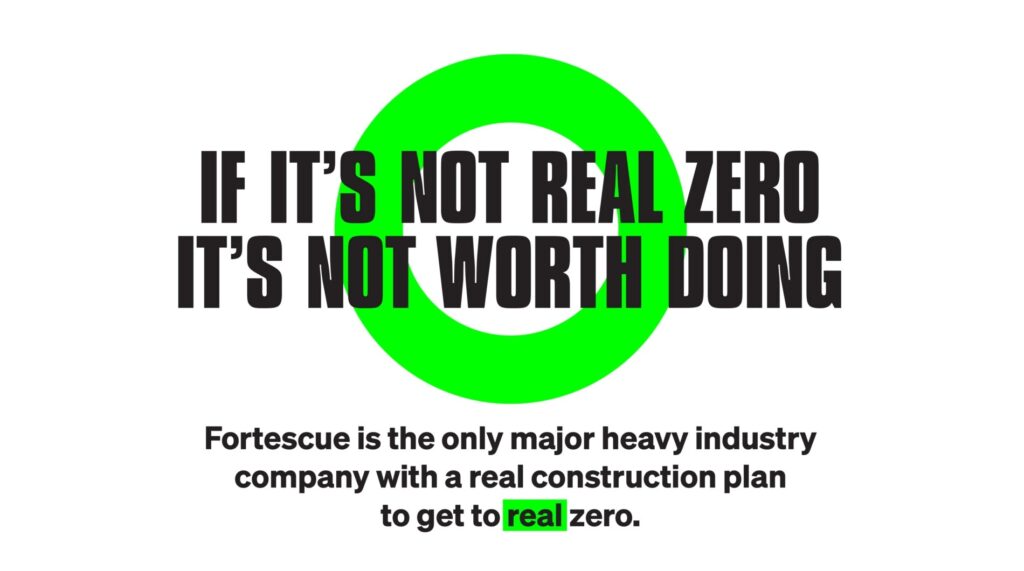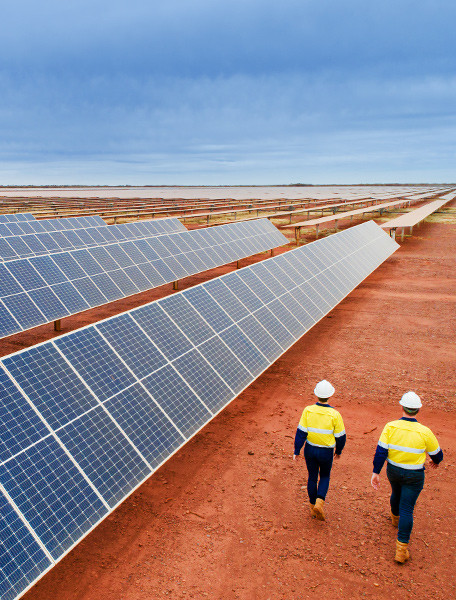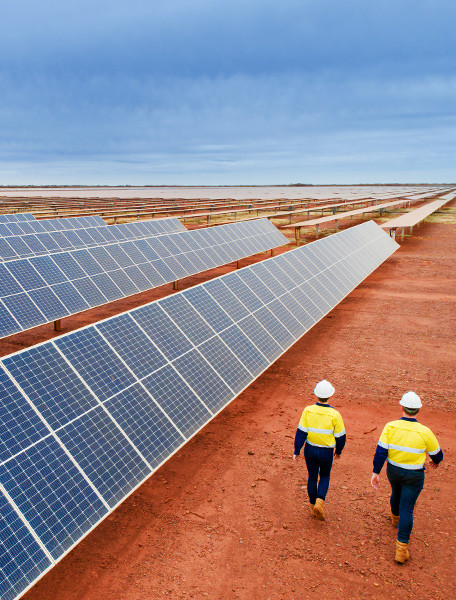
Right now, the world is fighting a battle on two fronts.
Countries are on the brink of a major energy security and supply crisis, and we are also already in the middle of a climate emergency.
We cannot wait until 2050, 2040 or even 2030 for solutions.
The solutions must start right now, today, and we must not let one problem exacerbate the other.
Instead, these problems should be the catalyst for change and opportunity, a chance for countries, like Oman, to take control of their future, create their own energy and export their sun and wind to global markets.
Decarbonisation can be a path to a stronger, more resilient economy.
It could mean construction jobs for decades.
It has the potentially to mean low-cost renewable energy right where you need it.
It could mean improving energy security.
It could mean global competitiveness, diversification of the economy and taking action in a carbon-counting world.
Oman is already planning for its lower carbon future, and it has a distinct advantage with a vast supply of renewable resources.
Fortescue stand to help with that transition, bringing the solutions, the technology, the supply chain, and the infrastructure to make the switch to renewable energy for a better future.
In September we made a major announcement in New York on the decarbonisation of our mining operations.
Fortescue emits more than 2.2 million tonnes of Scope 1 & 2 CO2 emissions each year, that’s 60% more than Fiji.
We are a big carbon emitter, and we are doing something about it.
In fact, we are the first major heavy industry company to have a fully funded plan to eliminate terrestrial carbon emissions from our iron ore operations (Scope 1 and 2) and get to real zero by 2030.
Fortescue has a roadmap to do this and, more importantly, it is a very sound investment decision for us.
Our plan is to invest US$6.2 billion into our decarbonisation strategy and, in the process, save US$3 billion before 2030.
What we are doing is showing the world it is possible.
Our decarbonisation plan can help move us beyond fossil fuels and significantly de-risk our business.
To do this, Fortescue is partnering with Liebherr to build and supply hydrogen fuel cell and battery electric mining haul trucks to replace our existing diesel fleet.
These haul trucks, which will emit no carbon during operation, will be integrated with the power system technologies being developed alongside Williams Advanced Engineering. They will begin to enter Fortescue’s fleet in 2025, working towards replacement of our existing diesel fleet by 2030.
It will have a significant impact on Fortescue’s emissions, with truck haulage currently consuming about 200 million litres of diesel per year and accounts for 26 per cent of Scope 1 emissions.
Beyond haul trucks, we need drill rigs, excavators, and all other mobile equipment running on green hydrogen or renewable electricity.
We are also designing and building two, new battery electric locomotives.
The Infinity Trains will utilise gravitational energy from travelling downhill fully loaded, which are designed to recharge the battery electric systems and not require any additional charging for the return journey back to the mine sites.
This fully costed decarbonisation plan is not only helping to significantly reduce our emissions, but it’s also preparing the business for the future.
It allows Fortescue to avoid an ongoing fossil fuel price risk, as well as avoid any future carbon pricing and carbon offset costs.
This is a significant milestone globally for an industrial company and we hope that we will set a great example for other heavy industry companies to do the same.
We want all investors, banks and customers to ask other companies the question: “if they can do it, why can’t you?”
It is very clear that the capital markets are quickly moving away from fossil fuels and that customers are demanding fossil fuel free products.
Fortescue is leading the world in responding to these shifts which presents a significant opportunity for our business.
Key to that is Fortescue Future Industries, which will not only enable our decarbonisation plan, but also drive the evolution of Fortescue into a global green energy, technology, and resources business.
FFI is building a global portfolio of hydropower, geothermal, wind and solar resources to meet a significant and rapidly growing global demand for green hydrogen and renewable energy.
We are working rapidly to meet the needs of our partners around the world, including E.ON in Germany, who is seeking the supply of five million tonnes of green hydrogen per annum from FFI, from mid-decade.
In order to meet that demand, FFI is looking at projects to produce green hydrogen and renewable energy across Africa, the Middle East, Europe, the US, South America and of course Australia.
We have recently progressed planning to final stages with Incitec Pivot for the proposed conversion of a site at Gibson Island in Queensland to produce green hydrogen, and to make green ammonia.
We have also entered into a global strategic collaboration with energy infrastructure developer Tree Energy Solutions.
This will help accelerate the development of a world leading green hydrogen import facility in Germany.
Technology will be key to scaling up the green hydrogen economy and making it cheaper and more efficient.
To help, FFI has established a US Technology Hub, based out of Colorado, it includes a potential 10-year collaboration with the U.S. Department of Energy’s National Renewable Energy Laboratory.
This collaboration is not only expanding FFI’s U.S. presence, but it will also strengthen our position as a significant global developer of renewable energy and green hydrogen technology.
Where technology doesn’t exist yet, we are investing to make it happen faster.
Where we think the supply chain might not keep up, we are investing in manufacturing capacity.
We are doing just that in Gladstone, Queensland, where our Green Energy Manufacturing centre is in the final stage of construction.
This will be one of the world’s largest electrolyser manufacturing facilities and is due to start production next year.
Looking to the future, FFI hopes to strengthen its relationship and presence in Oman, and will be actively participating in the bidding for a number of blocks offered up by the Omani government for the establishment of green hydrogen projects.
FFI will bring to Oman the same approach we have taken in Australia – with a sharp focus on adding value to the local communities and the national economy through employing and training Omanis and looking to build out down-stream manufacturing in Oman as well.
We are moving fast, because the planet needs us to.
It’s time to speed up the world’s energy transition and move on from fossil fuels.
The green industrial revolution is underway.









